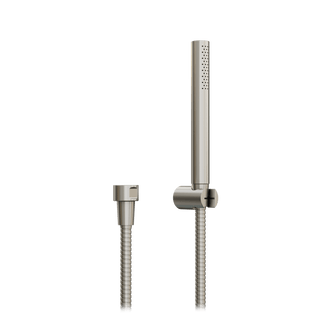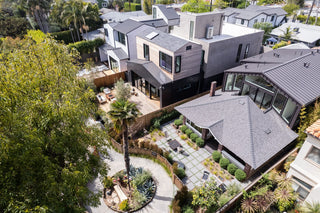Sustainability Through Gardening

From the majestic, overhanging terraces of Babylon to the charming backyard gardens of today, the art of gardening has been a staple of human innovation and serenity since the early age of man.
Today, gardening ranks among the most popular hobbies in the U.S., with more than 50% of households participating in related activities. The scope is broad, encompassing everything from personal strawberry patches to expansive flower gardens that feature species from across the globe. Curb appeal, the first impression a home makes, can be significantly enhanced by integrating the very elements of nature that originally occupied the land. What better way to beautify a house than to envelop it in nature’s embrace. There is no doubt that gardens enhance the space around them, but there are studies that show the lasting effects they can have on the people that tend to them.
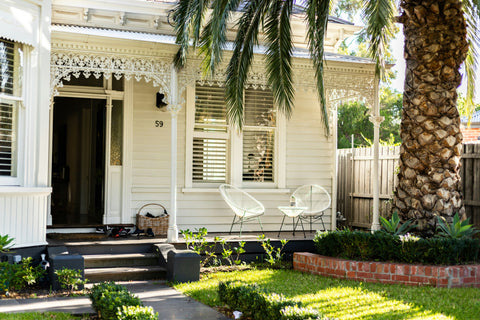
Beyond beautifying our surroundings, gardens have a profound impact on those who nurture them. Research has revealed the extensive benefits of gardening, touching on both physical and mental well-being. Gardening isn’t merely about tending to seedlings in the soil; it's a practice of self-care and sustainability. A noteworthy study conducted by the University of Colorado, with funding from the American Cancer Society, discovered that individuals who engage in gardening activities reduce their risk of cancer, chronic diseases, and mental health issues. This isn't solely due to the physical activity involved; the fruits and vegetables harvested provide essential nutrients that promote a healthy body. Gardeners in the study consumed an average of 7% more fiber than their non-gardening counterparts, a significant increase given that the average adult consumes less than 16 grams of fiber daily, well below the recommended intake of 25 grams.
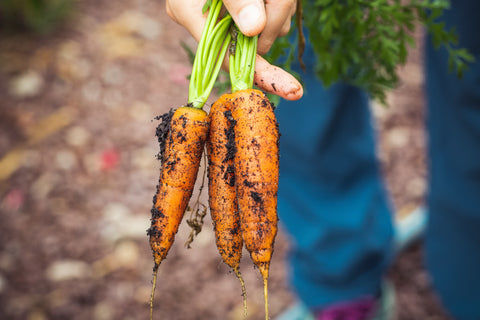
The concept of 'Green Living' or 'Sustainable Living' is gaining traction, advocating for a lifestyle that maintains harmony with our natural resources rather than depleting them. This shift is evident not only in the way people interact with their environment but also in the products they purchase. An article in the Harvard Business Review notes that sustainable-marked products grew faster than their unsustainable counterparts in more than 90% of consumer-packaged goods categories. It’s clear that in the past decade there has been a major shift in consumer behavior. While countless books, films, and theses are dedicated to sustainability, the focus of this discussion is on the pivotal role of gardening within this movement.
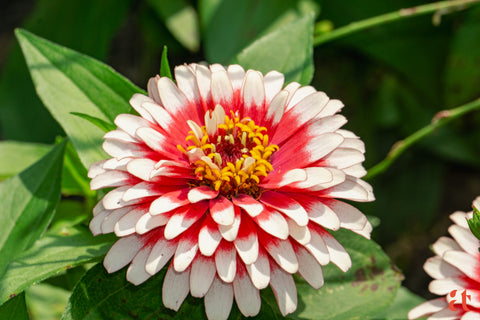
The Environmental Protection Agency (EPA) identifies transportation as a major contributor to CO2 emissions. Our lives are entwined with constant movement, relying on petroleum-based vehicles for ourselves and our goods, including food. Gardening addresses this issue head-on by reducing our carbon footprint in two significant ways. First, through photosynthesis, gardens actively absorb CO2. Second, by growing some of our own food, we decrease the need for transportation associated with mass-produced goods and our trips to the grocery store.

Another cause of greenhouse gases is the synthetic pesticides and fertilizers used in mass food production. By utilizing natural fertilizers, we’re cutting down on those chemicals, protecting the soil and water quality. Gardens not only facilitate growth within, but as you cultivate a variety of plants and flowers, the ecosystem around them is enhanced. Pollinators, essential for supporting crop and plant life, are in decline, and creating spaces for them to inhabit allows for this crucial ecological survival function.

Personal gardening also allows for efficient water usage. According to the Proceedings of the National Academy of Sciences (PNAS), 85% of the total water resources used in the world are for agricultural purposes. Precision agricultural technology is advancing, but within your own space, homeowners can actively seek systems for the most efficient water usage. This includes tools like water timers, drip irrigation lines, and leak-free faucets.
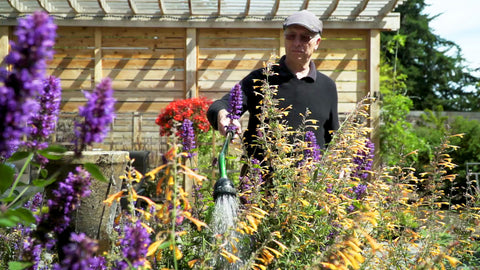
A note from the author
Each hobby is a fingerprint of the individual who pursues it, distinct and special in its significance. Gardening may not beckon to every person, but its benefits extend far beyond the garden gate. Acknowledging the influence it has on our world nurtures a seed of respect for the Earth and all its caretakers. As I wrote and researched this topic, I gained a newfound appreciation for everyone that immerse their hands in soil, and I enthusiastically encourage them to continue, and to share their stories! As Aquor looks towards the future we want to build products that can be a key to these greener pursuits. Regardless of size or setting, we believe we can have a design that can help maximize the space, increasing efficiency and potential. Our goal is to help you foster a great relationship with your outdoor space. So, I extend an invitation to you: let your curiosity lead you to the garden. Whether it’s nurturing a windowsill of herbs or orchestrating a symphony of flowers, that added greenery is leaving a positive effect. Share your gardening stories, celebrate your living canvases, and take pride that with each garden, no matter the size, is a step towards a more sustainable future.
-Cash Walcome
Founder & CEO






